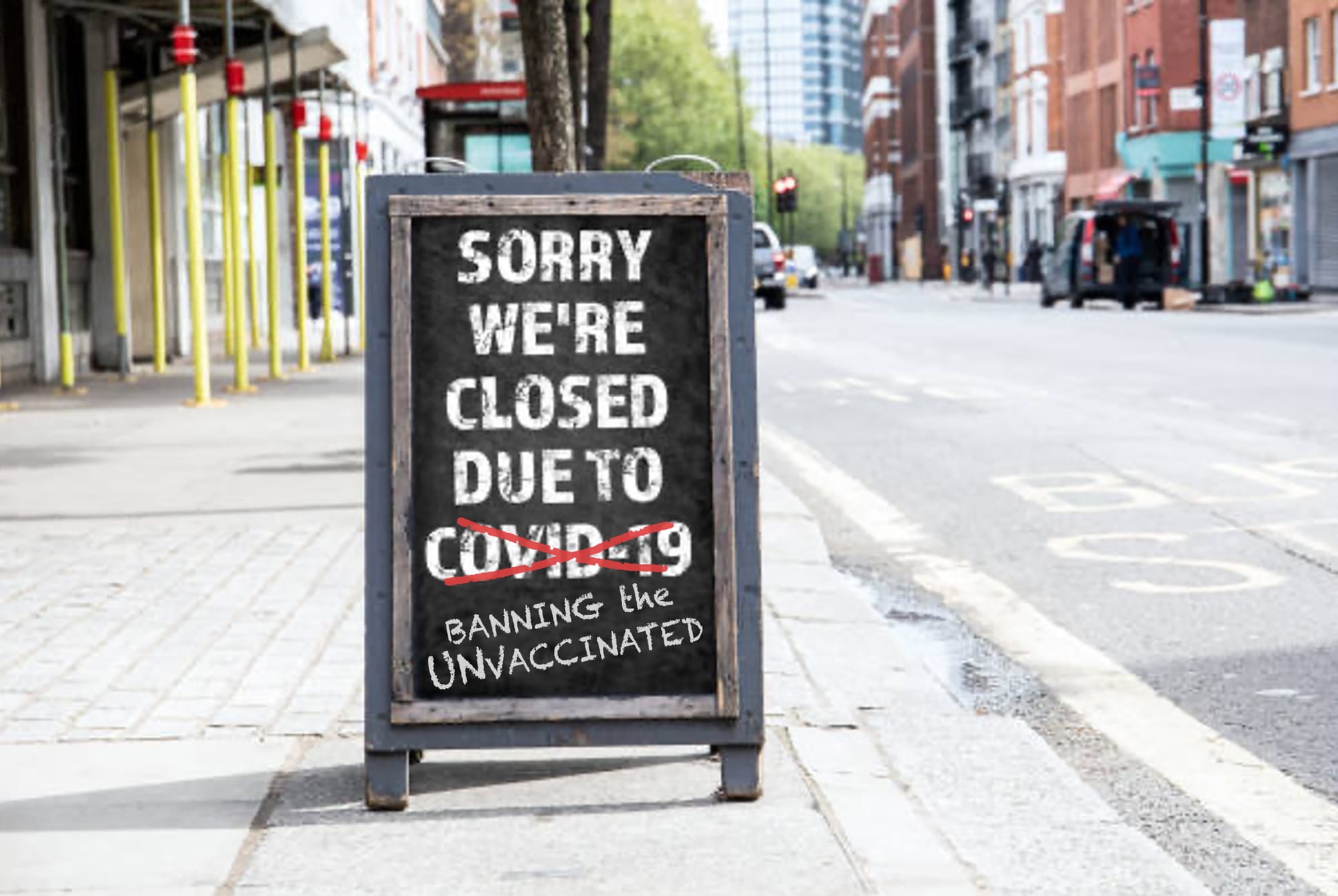Table of Contents
“Every time a business closes, that’s lost wealth, health, relationships and sometimes lives as well.”
– Geoff Neal, NZ Business Consultant.
How much more pressure can businesses in New Zealand take? Many have had their profit margins slashed. Customer and staff levels were reduced as Ardern’s vaccine mandates came in. It is uncertain how many vaccine free people there are in New Zealand, but conservative estimates are 10-15%. Some Kiwi businesses have felt keenly the impact of fewer customers because the unvaccinated are no longer able to enter their premises and spend.
Fewer customers mean fewer sales and less profit. Reduce the profit margin too much and a business will be in financial difficulties. They may even have to shut up shop.
Closures and bankruptcies can be caused by many factors: poor health, unsustainable debt, divorce or separation, unexpected expenses, poor business decisions, lack of insurance and so on – but shortages have also had a negative impact on businesses.
During the last two years of Covid-19 many NZ businesses were struggling with shortages of stock (due to importing and shipping hold-ups), shortages of labour (due to Immigration/MIQ intransigence and vaccine mandates), extensive lockdowns with no income, no tourist dollars and no RAT (Rapid Antigen Tests) to keep the doors open. Now they still face mandates and bans on the unvaxxed.
Restricting Sales Punishes Businesses.
There are always challenges in business, but when the government reduces your potential market by 10-15%, keeping your doors open is that much harder.
On Friday 3 December Ardern punished the unvaccinated ruthlessly. They were banned from going to restaurants, cafes, hairdressers, swimming pools, gyms, libraries, sports events, music events, cinema and more. Many had already lost their jobs in November because of the mandates, pushing them towards poverty with less money to spend but Ardern continued to rub salt into the wound by also telling them which businesses they could not enter. In doing so, she ‘unintentionally’ punished those businesses as well.
A Recent Example of a Business Almost Losing an Order and a Customer.
A man went to a local Thai restaurant to pick up a large phoned-in order of takeaways for unexpected visitors for dinner. They asked for his vaccine passport, which he doesn’t have as he is a vaccine free person. Thankfully another person with him came to the rescue and flashed his pass, which makes a mockery of the whole system but that’s another story. This popular restaurant is run by a young couple. What can they do? They don’t want to discriminate, but are stretched with hard work, young family to support, lockdowns, rules, and WorkSafe gestapo roaming around trying to catch them out serving the unvaccinated.
The Number of Business Closures Has Exceeded the Creation of New Ones for the First Time since 2012.
Data from Stats NZ and the not-for-profit organisation, The Facts, showed 64,809 firms closed their doors in the year ended February, while 64,488 firms were created, resulting in a net decline of 321 firms – the first since 2012.
Small business consultant and co-founder of The Facts, Geoff Neal, said the sharp increase in closures can only be explained by the pandemic, and the associated lockdowns and travel restrictions.
“There’s a very consistent trend that there’s about 60,000 businesses created per year and about 50,000 close, and this has really bucked the trend of previous years.”
rnz.co.nz/news/national/456929/business-closures-outnumber-new-firms-for-first-time-in-nearly-a-decade Dec 21
What Is a Good Profit Margin for a Sole Trader in NZ?
A good margin will vary considerably by industry and size of business, but as a general rule of thumb, a 10% net profit margin is considered average, a 20% margin is considered high (or “good”), and a 5% margin is low. (business.govt.nz)

Businesses can ill afford the time, effort and finances to put up a legal challenge against the government. To avoid a fight and a huge fine, they are forced to turn away good customers without a vaccine passport. New Zealand businesses are trying to survive but too many of them will be forced to join the others and close their doors permanently.
Like MIQ, vaccine mandates are immoral and ought to be abolished.









